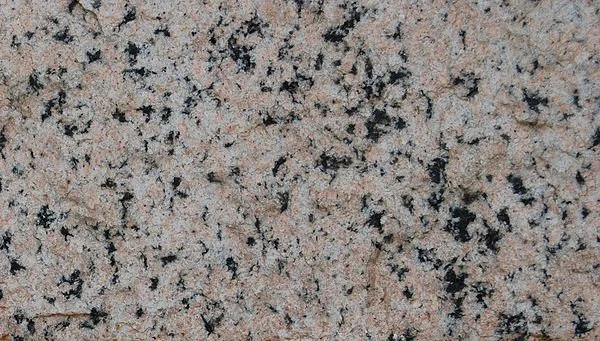
Don Pesci: In search of Anti-Semitism in Conn. and elsewhere
William F. Buckley Jr. in 1985
VERNON, Conn.
National Review, founded by the late William F. Buckley Jr. (1925-2008) in 1955, has been a stumbling block to neo-progressive Democrats for nearly seven decades. The mission of the magazine, Buckley announced at its founding, was to “stand athwart history, yelling Stop, at a time when no one is inclined to do so, or to have much patience with those who so urge it.”
Jack Fowler, now running for city clerk in Milford, Conn., has been associated with the magazine for more than three decades and served for a time as its publisher.
Fowler, along with Buckley and other non-far-right conservatives at National Review, cannot reasonably be accused of either anti-Semitism or unflinching support of former President Donald Trump.
Long before Trump threw his hat in the presidential-campaign ring, Buckley characterized Trump as a “vulgarian,” and National Review later took some kicks in the stomach for having devoted a whole issue of the magazine to a political polemic titled “Never Trump.”
In 1992, Buckley published what some consider the best view of modern anti-Semitism, In Search of Anti-Semitism.
John O’Sullivan, then publisher of National Review, characterized the book this way: “It is not a history of anti-Semitism, nor a social-psychological definition of anti-Semitism, not a survey of anti-Semitism in the world today.” The book is rather “an examination of how anti-Semitism is treated when it appears, or is alleged to appear, in the limited but influential milieu in which he [Buckley] happens to live: opinion magazines, op-ed pages, syndicated columns, television talk shows.”
The book may be considered especially relevant considering the current pro-Hamas protests, some of them patently anti-Semitic, among leftist outposts in ivy-league fever swamps, opinion magazines, op-ed pages, syndicated columns and television talk shows.
“The election for Milford city clerk,” a Hartford paper reports, “is traditionally a low-key, overlooked local contest for a job that includes approving items like marriage and dog licenses. But the campaign this year has exploded into charges and countercharges as Democrats are blasting Republican Jack Fowler for a series of controversial posts on a variety of subjects dating back to 2012.”
Opposition researchers likely associated with Connecticut’s mud-throwing Democrat Party have unearthed “a series of controversial tweets by Fowler that date back more than a decade and involve sharply criticizing another Milford Republican and making references to Jews.”
The tweet in question “written by Fowler, which came to light recently when retweeted to nearly 44,000 followers by Connecticut Democrats, states “Jewrack Jewbama. Jew Biden. Nancy Jewlosi. Hebrewllary Clinton. Yeah, you’re right now that I think about it.”
Fowler, the paper observes, “admits writing the posts but says they were either sarcastic, done in jest or responding to news events of the day that cannot be understood properly without knowing the original tweets that caused the response… Fowler says he was responding to another post, which has since been deleted, that had criticized National Review, which is a staunch defender of Israel. In addition, Fowler released a series of pro-Israel tweets that he wrote, along with three articles that he authored for the magazine on anti-Semitism.”
Defending himself from a charge of anti-Semitism, Fowler answered, “There is no question where I stand thoroughly, very publicly, repeatedly, voluminously over the years [on Israel]. To be accused to being anti-Semitic is reprehensible, especially by people who know it’s not true. … People who know me in Milford know this is B.S. This is the age we live in. It’s not to win an election. It’s to destroy the reputation of somebody.”
Given the prevailing circumstances in the hot war between Israel and Hamas, every rhetorician on planet earth would acknowledge that, if you are defending yourself against an unwarranted charge of anti-Semitism, you are losing the argument. Quite like a poisonous false charge of racism, the mere making of the charge itself is certain proof of culpability.
Fowler’s statement, even if made in jest, said state Democratic Party Chairperson Nancy DiNardo, is “inappropriate.” But it is seemingly appropriate to tat political opponents with anti-Semitism. Such ideological tattoos do not easily wear away, even if they are demonstrably false.
DiNardo, applying her pitch-brush more broadly, continued “I think it points to how bad the Republican Party is getting. They’re going to be extremists at every single level. It’s just not what the Connecticut voters stand for… He was the publisher of an ultraconservative, far-right magazine. Of all the candidates that the Republicans could have picked in Milford, and they picked him? That’s shocking to me. He’s not a good candidate to be running for this position.”
The easily shocked DiNardo very likely has never leafed through the non-far-right, non-ultraconservative National Review. She certainly has never read Buckley’s In Search of Anti-Semitism.
We have here reached a point –of no return? – in which ideologically polluted charges need not be proven before they are unjustly launched against political foes simply to win elections.
When Alice in Lewis Carroll’s Through the Looking Glass rebukes Humpty Dumpty for having used the same word to mean opposite things, Humpty Dumpty replies imperiously that the word he is using means exactly what he “chooses it to mean, neither more nor less. The only question is – who rules.”
In Connecticut, Democrats rule.
Don Pesci is a Vernon-based columnist.
Brown study in a nightclub
“Jill at Ralph’s Diner” {restaurant and nightclub in Worcester}, photo by Milford, Mass.-based Anne D. McNevin at the current Attleboro Arts Museum’s members show.
First settled by English colonists in 1662 and incorporated in 1780, Milford became a booming industrial and mining community in the 19th Century, in large part because of a location that includes several rivers for waterpower and other uses, and large quantities of Milford pink granite.
Milford Pink Granite
The Flour and Grain Exchange Building, Boston (1892), built, as were many other large, impressive buildings in the Northeast, with Milford Pink Granite.
Using ribbed mussels to clean water
Ribbed mussel.
From ecoRI News (ecori.org)
MILFORD, Conn.
Ribbed mussels can remove nitrogen and other excess nutrients from an urban estuary and could help improve water quality in other urban and coastal locations, according to a study in New York City’s Bronx River. The findings, published in Environmental Science & Technology, are part of long-term efforts to improve water quality in the Bronx River estuary.
Researchers at the National Oceanic and Atmospheric Administration's Fisheries Milford Laboratory began the two-year pilot project in June 2011. They used a 20-by-20-foot raft with mussel growing lines hanging below as their field location in an industrial area near Hunt’s Point, in the South Bronx, not far from a sewage-treatment plant. The waters were closed to shellfish harvesting because of bacterial contamination. Scientists monitored the condition of the ribbed mussels and water quality over time to see how each responded.
“Ribbed mussels live in estuarine habitats and can filter bacteria, microalgae, nutrients and contaminants from the water,” said Julie Rose, a research ecologist at the Milford Laboratory, part of the Northeast Fisheries Science Center, and co-author of the study. “They are native to the East Coast so there are no concerns about invasive species disturbing the ecosystem, and they are efficient at filtering a variety of particles from the water. Ribbed mussels are not sold commercially, so whatever they eat will not be eaten by humans.”
Farming and harvesting shellfish to remove nitrogen and other excess nutrients from rivers, estuaries and coastal waters is known as nutrient bioextraction, or bioharvesting. Mussels and other shellfish are filter feeders, and as the organisms grow, they take up or assimilate nutrients in algae and other microorganisms filtered from the surrounding waters.
Nitrogen, phosphorus and other nutrients occur naturally in the environment and are needed by plants and animals to grow, but too much of any of them is harmful. Excess amounts from human activities often end up in rivers, streams and coastal environments, causing algal blooms, loss of seagrass and low oxygen levels, which can kill large numbers of fish.
Researchers found that the Bronx River mussels were generally healthy, and their tissues had high amounts of a local nitrogen isotope, indicating that they removed nitrogen from local waters. They also had lower amounts of trace metals and organic contaminants than blue mussels collected from the seafloor nearby. An estimated 138 pounds of nitrogen was removed from the river when the ribbed mussels were harvested.
The researchers estimate that a fully populated 20-by-20-foot mussel raft similar to the one used in the study would clean an average of 3 million gallons of water and remove about 350 pounds of particulate matter, such as dust and soot, daily. When harvested, the animals could be used for fertilizer or as feed for some animals, recycling nutrients back into the land.
The mussel raft was placed at the confluence of the East River tidal strait and the Bronx River in a high-nutrient, low-chlorophyll system, making the site unsuitable for large-scale mussel growth. Future projects using ribbed mussels for nutrient remediation will need spat or larvae from another location or from hatchery production.
“Management programs to reduce the effects of excess nutrients in the water have largely focused on land-based sources, such as human and livestock waste, agriculture, and stormwater runoff,” said Gary Wikfors, Milford Laboratory director and co-author of the study. “They really haven’t looked much at recovering the excess in the water itself. Nutrient bioextraction using shellfish is becoming more common, and this study demonstrated that it could be an additional tool for nitrogen management in the coastal environment.”
The Bronx study is the first to examine the use of ribbed mussels for nutrient bioextraction in a highly urbanized estuarine environment. A previous study comparing the Bronx River to the more productive Milford Harbor estuary indicated that ribbed mussels were able to adapt in just a few days to low food availability and feed with the same efficiency in the Bronx River site as populations at the Milford River site. That study also supports the use of ribbed mussels as a management tool for nutrient bioextraction in a range of coastal environments.






